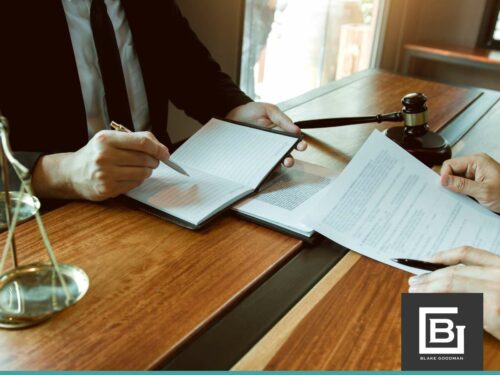Why Self-Employed Individuals Should Seek a Bankruptcy Lawyer for Chapter 13 Filing


 Reaching the end of your financial capacity may feel like reaching a dead-end with no way out. The matter becomes more significant if you work for a commission or if you’re a freelancer. As a sole proprietor, your business and personal assets are legally connected, which can make debt resolution more complicated. If you’re wondering whether Chapter 13 bankruptcy is an option, the good news is—it is!
Reaching the end of your financial capacity may feel like reaching a dead-end with no way out. The matter becomes more significant if you work for a commission or if you’re a freelancer. As a sole proprietor, your business and personal assets are legally connected, which can make debt resolution more complicated. If you’re wondering whether Chapter 13 bankruptcy is an option, the good news is—it is!
However, the process can be more complex and nuanced and you will benefit significantly from the help of a bankruptcy lawyer.
Difference Between Chapter 7 Bankruptcy & Chapter 13 Bankruptcy
There are two main types of bankruptcy that are distinctly different:
Chapter 7 Bankruptcy – Liquidation Bankruptcy
- Most debts are discharged, but only after non-exempt assets are sold to repay creditors.
- Eligibility is based on income—you must pass a means test to qualify.
- Businesses often shut down under Chapter 7, making it unsuitable for those who want to continue operations.
Chapter 13 Bankruptcy – Reorganization Bankruptcy:
- Debts are restructured into a repayment plan (3 to 5 years), allowing you to keep assets while paying creditors over time.
- No means test is required, but you must prove a stable and regular income to qualify.
- Sole proprietors can continue running their business, subject to court supervision.
How Chapter 13 Bankruptcy Works for Self-Employed Individuals
To file for Chapter 13 bankruptcy, you must demonstrate a reliable source of income to cover your repayment plan. Once approved:
- An automatic stay halts creditor actions, including wage garnishments, lawsuits, and foreclosures.
- You will work with a court-appointed trustee who oversees payments to creditors.
- The repayment plan will last 3-5 years, depending on your situation.
- At the end of the plan, some remaining unsecured debts may be discharged.
Unlike Chapter 7, you won’t have to sell your assets, making Chapter 13 a preferred option for many self-employed individuals.
Why Filing For Bankruptcy As a Self-Employed Individual Can Be Complex
While Chapter 13 allows you to keep your business running, self-employed individuals face additional challenges:
Mixed Personal & Business Finances
As a sole proprietorship, your personal and business debts are legally linked. This means that both are considered in bankruptcy filings.
- You must provide detailed financial records to separate business-related expenses from personal ones.
- If records are unclear, your trustee may request additional financial statements, causing delays.
Meeting The Income Requirement
To qualify for Chapter 13, you must prove a consistent and sufficient income to cover your repayment plan.
- Self-employed income fluctuates, so courts may require tax returns, profit/loss statements, and bank records from the past year or more.
- Your trustee may request future income projections to ensure you can sustain payments.
Without clear documentation, creditors may object to your repayment plan, requiring additional court proceedings.
Operating a Business During Bankruptcy
Unlike Chapter 7 bankruptcy, where businesses typically close, Chapter 13 allows you to continue operations—but with court supervision.
- Major financial decisions (e.g., taking on new debt, selling business assets, or signing contracts) may require court approval.
- Your repayment plan must cover both personal and business expenses, adding financial pressure.
Failing to maintain stable operations can result in case dismissal or conversion to Chapter 7 liquidation.
More Scrutiny From Trustees
Because of the complexity of sole proprietorships and their mixed personal and business finances, trustees may take a closer look at finances to make sure the repayment plan is sustainable. This can mean even more detailed documentation is required. You will likely need to provide documentation for:
- Income
- Expenses
- Assets
- Profit and losses
If you have kept poor records or you have financial practices that are unclear, this can lead to delays and difficulties in getting the plan approved. If you’re unsure whether or not your self employment job will qualify for Chapter 13 bankruptcy, a bankruptcy lawyer can help.


Protect Your Rights & Ensure Bankruptcy Success With Our Bankruptcy Lawyers

 Whether or not you’re self-employed, the bankruptcy process can be complex. If you are looking into the process, reach out to our bankruptcy lawyers at Blake Goodman. We have years of experience in the field and an in-depth understanding of Hawaii bankruptcy law. With compassion and a commitment to helping you live debt free in Hawaii, we will walk you through the process from start to finish and will even help you raise your credit score.
Whether or not you’re self-employed, the bankruptcy process can be complex. If you are looking into the process, reach out to our bankruptcy lawyers at Blake Goodman. We have years of experience in the field and an in-depth understanding of Hawaii bankruptcy law. With compassion and a commitment to helping you live debt free in Hawaii, we will walk you through the process from start to finish and will even help you raise your credit score.
Get started towards a brighter financial future and reach out to our law firm today for a free consultation!